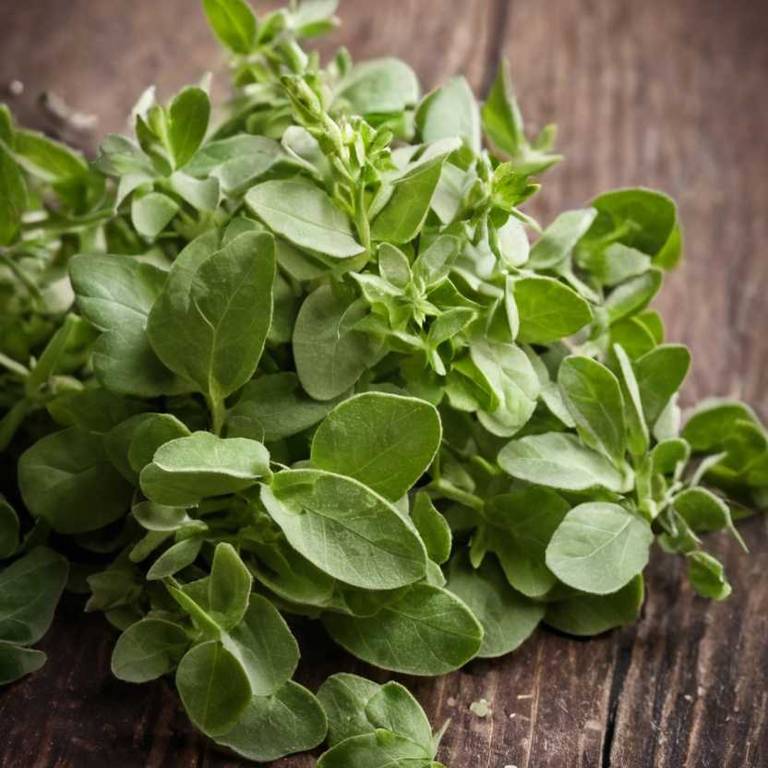By Leen Randell
Updated: Jul 05, 2024
What Are The Medicinal Properties Of Origanum Vulgare (Wild Marjoram)?

Origanum vulgare, also known as wild marjoram, has health benefits such as reducing inflammation and improving digestive issues.
Its medicinal constituents include carvacrol, thymol, and rosmarinic acid, which exhibit antimicrobial, antioxidant, and anti-inflammatory properties. Traditionally, wild marjoram is used in herbal teas, infusions, and topical preparations to soothe respiratory issues and skin conditions. However, excessive consumption may cause stomach upset, diarrhea, and allergic reactions.
Pregnant and breastfeeding women should consult a healthcare professional before using wild marjoram.
This article explains the health benefits, active constituents, medicinal preparations, possible side effects, and precautions related to Origanum vulgare.
What are the health benefits of Origanum vulgare?
Origanum vulgare, also known as wild marjoram, has health benefits such as antioxidant, anti-inflammatory, and antimicrobial properties.
The herb has been traditionally used to alleviate digestive issues, such as bloating and indigestion, due to its carminative and antispasmodic effects.
Additionally, its essential oils have been found to have antibacterial and antifungal properties, making it a popular natural remedy for skin and respiratory conditions, including acne and coughs.
Here's a detailed article about the 10 health benefits of Origanum vulgare.
What are the active constituents of Origanum vulgare?
Origanum vulgare, also known as wild marjoram, has active constituents such as carvacrol, thymol, and borneol, which possess antimicrobial, anti-inflammatory, and antioxidant properties.
These compounds have been found to inhibit the growth of bacteria, viruses, and fungi, making it a natural remedy for treating digestive issues, respiratory problems, and skin infections.
The essential oil derived from Origanum vulgare has also been used to soothe and calm digestive issues.
Here's a detailed article about the 10 active constituents of Origanum vulgare.
What are the medicinal preparations of Origanum vulgare?
Origanum vulgare, also known as wild marjoram, has medicinal preparations such as essential oil, infusion, and ointment.
The essential oil is obtained through steam distillation of the leaves and flowers and is used for its antimicrobial, anti-inflammatory, and antiseptic properties. The infusion is made by steeping the leaves in hot water and is often used to relieve digestive issues and promote wound healing.
The ointment is used topically to treat skin irritations and minor wounds.
Here's a detailed article about the 10 medicinal preparations of Origanum vulgare.
What are the possible side effect of using Origanum vulgare improperly?
Improper use of Origanum vulgare, also known as wild marjoram, increases the chances of experiencing side effects such as stomach upset, nausea, and diarrhea.
In rare cases, excessive consumption may cause allergic reactions, such as hives, itching, and difficulty breathing.
Additionally, oral or topical application may lead to skin irritation, especially in individuals with sensitive skin, and internal consumption may interact with certain medications, including blood thinners and diabetes medications.
Here's a detailed article about the 10 most common side effects of Origanum vulgare.
What precautions to take when using Origanum vulgare medicinally?
Before using Origanum vulgare, also known as wild marjoram, for medicinal purposes, you must take precautions such as consulting a healthcare professional, especially if pregnant, breastfeeding, or taking medications.
High doses or prolonged use may cause gastrointestinal issues, allergic reactions, and interactions with certain medications.
Also, avoid using wild marjoram in large quantities, as it may cause an imbalance of certain nutrients in the body.
Here's a detailed article about 10 precautions to take when using Origanum vulgare.